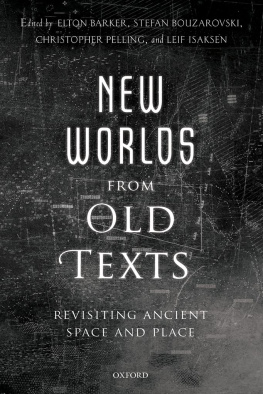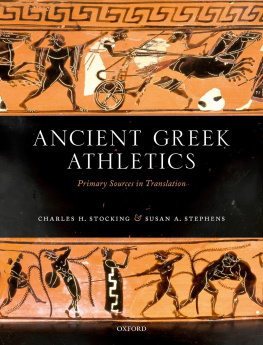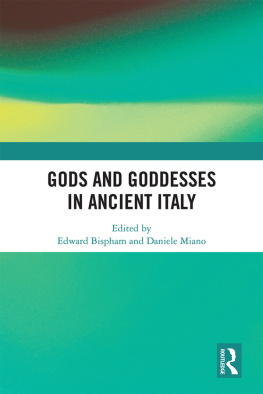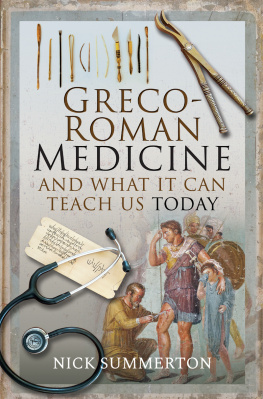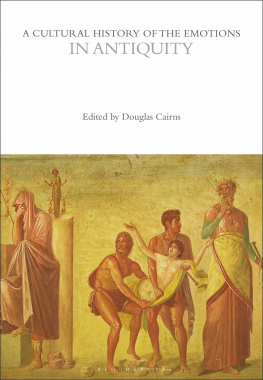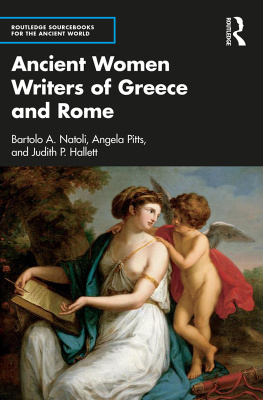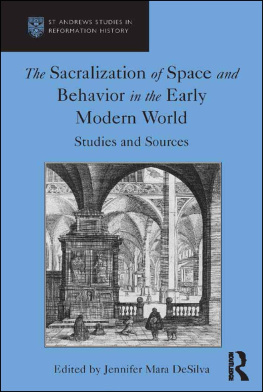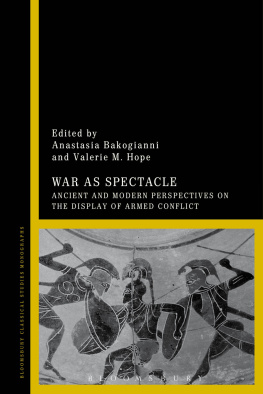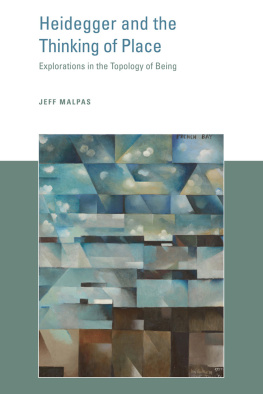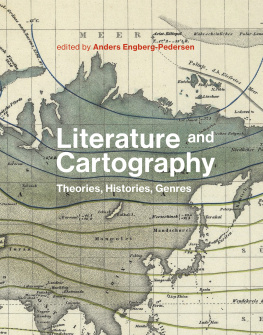NEW WORLDS FROM OLD TEXTS

Great Clarendon Street, Oxford, OX2 6DP, United Kingdom
Oxford University Press is a department of the University of Oxford.
It furthers the Universitys objective of excellence in research, scholarship, and education by publishing worldwide. Oxford is a registered trade mark of Oxford University Press in the UK and in certain other countries
Oxford University Press 2016
The moral rights of the authors have been asserted
First Edition published in 2016
Impression: 1
All rights reserved. No part of this publication may be reproduced, stored in a retrieval system, or transmitted, in any form or by any means, without the prior permission in writing of Oxford University Press, or as expressly permitted by law, by licence or under terms agreed with the appropriate reprographics rights organization. Enquiries concerning reproduction outside the scope of the above should be sent to the Rights Department, Oxford University Press, at the address above
You must not circulate this work in any other form and you must impose this same condition on any acquirer
Published in the United States of America by Oxford University Press
198 Madison Avenue, New York, NY 10016, United States of America
British Library Cataloguing in Publication Data
Data available
Library of Congress Control Number: 2015953522
ISBN 9780199664139
eISBN 9780191075032
Links to third party websites are provided by Oxford in good faith and for information only. Oxford disclaims any responsibility for the materials contained in any third party website referenced in this work.
Donald Murray was part of a particularly close-knit and friendly group of PhD students in Durham. Soon after gaining first-class honours in Classics Donald was diagnosed with brain cancer. He took one year off to undergo surgery and then came back to Durham to pursue his studies. Under the supervision of Johannes Haubold, Donald was to study the ways in which the Achaemenid kings communicated with their subjects: in particular, the choice of different languages in different contexts, the reason for these choices, the different nuances in the meaning conveyed.
Extremely sharp, though typically understated and reluctant to formulate a strong thesis as he felt his way through the material, Donald could always be relied upon for perceptive and informed remarks that continue to resonate with everyone who had the privilege to discuss work with him. It was never Donald who mattered, but the ideas and the people around. In the third year of his PhD, when his work was already advanced, Donald suffered a recurrence of his cancer; he died in July 2011, aged just 28. What we remember particularly was his concern, once he realized how ill he was, with his work, and especially the paper for this volume: it meant so much to him that it would be accepted. Even from his hospital bed, he kept asking about the latest news of its progress.
At the time of the Hestia conference Donald had still been well. Things had changed a year later, at the annual conference of the Classical Association in Durham 2011, when Donald was one of a small group of PhD students who had volunteered to helphe could be seen manning the desk, or having a quick lunch in the break, bantering with his fellow students. This is how we remember Donald: in the midst of his fellow students, discussing the papers they had been able to attend, or sharing a joke about the latest mishap to befall the conference organizers, all in a spirit of friendship and intellectual camaraderie.
In February 2014, Donald was awarded a posthumous PhD for his thesis on Darius and his Audiences: A Study in the Royal Inscriptions and their Earliest Reception.
This book is dedicated to his memory. We hope that it may give some comfort to his loving family.
Paola Ceccarelli and Johannes Haubold
Acknowledgements
First and foremost we would like to thank the Arts and Humanities Research Council (AHRC) for funding this research (ID. No. AH/F019459/1), both the initial project (an Early Career Research Grant, 200810) and the subsequent follow on funding (201314), where we shifted from geospatial experimentation to consolidating the technological outcomes and sharing knowledge of those methods and tools with cognate disciplines, interested cultural heritage groups and the general public. Immense gratitude goes to the Arts Research team at The Open University for helping put together the Hestia2 proposal and for making sure that all the monies were wisely spent. For the publication of this book we are especially indebted to: all at OUP, in particular Annie Rose who expertly led us from rough sketches to proof; our two anonymous referees, whose acute critiques we have endeavoured to address; and all the contributors to this volume, who have made editing more of a pleasure than a chore.
Our book ultimately derives from the conference New Worlds out of Old Texts: Interrogating New Techniques for the Spatial Analysis of the Ancient World (July 2010). We are extremely grateful to the Ioannou Centre for Research in Classical and Byzantine Studies at Oxford for hosting that event (as well as the projects opening seminar in January 2009) and to Christ Church, Oxford for housing the attendees so royally. We are also sincerely grateful to all seminar and conference participants, especially: Nicholas Purcell, who rightly questioned whether we should be making any claims on Herodotus narrative as evidence for the existence of specific real-life networks; Katherine Clarke, who reminded us that rivers could be both markers of boundaries and facilitators of movement; and Irad Malkin, who helped us see the value of a book that would keep an interdisciplinary approach to spatial matters. Even so, this book couldnt accommodate all the speakers, though their work continues to test the limits of our discipline: Marco Bchler on text-mining approaches (); Greg Crane on making classical texts online and open (); Stuart Dunn on developing visualizations that allow for different and partial perspectives (deep maps: ); and Agnes Thomas on reading archaeological evidence in and against the text of Thucydides Pentecontaetia ().
We owe a large debt to all audiences of Hestia, who have greatly informed our work with incisive comments and questions, including: invited presentations at the universities of Birmingham, Liverpool, and Exeter; conferences in Glasgow (Classical Association), KCL (Digital Humanities), Istanbul (Black Sea Antiquities congress), Amsterdam (Space and Narrative), Berlin (TOPOI Excellence Cluster: ), and Vancouver (Social Science and History Association); and special workgroups on Research Communities and Research Infrastructures in the Humanities (European Science Foundation Standing Committee for the Humanities, Strasbourg), Historical Texts and Digital Classics (Tufts University, Boston), Information Visualisation in the Digital Humanities (the European Science Foundation Network for Digital Methods in the Arts and Humanities, Ume and Hamburg); and The Scholarly Communications and Information Technology (SCIT) programme (the Andrew W. Mellon Foundation, New York).
Many friends and colleagues have helped to make Hestia such an intellectually stimulating, professionally rewarding, and, above all, fun project to be involved in. Shout-outs go to: Tom Brughmans, Nicole Coleman, Enrico Daga, Mike Johnson, Phil Jones, Tony Hirst, Chris Ann Matteo, Jessica Ogden, Beverley Parker, Adam Rabinowitz, Lorna Robinson, and Nicole Schadewitz of Hestia2; Kate Byrne, Eric Kansa, and Nick Rabinowitz of Google Ancient Places; Bridget Almas, Marie-Claire Beaulieu, Monica Berti, Greg Crane, and the rest from the Perseus/Leipzig team; Tom Elliot and Sean Gillies of Pleiades; and Gabriel Bodard, David Bodenhamer, Anna Collar, Fiona Coward, Tim Evans, Ian Gregory, Simon Hornblower, Carl Knappett, Kyriaki Konstantinidou, Fredrick Palm, Saskia Petrova, Sebastian Rahtz, and Charlotte Rouech.

